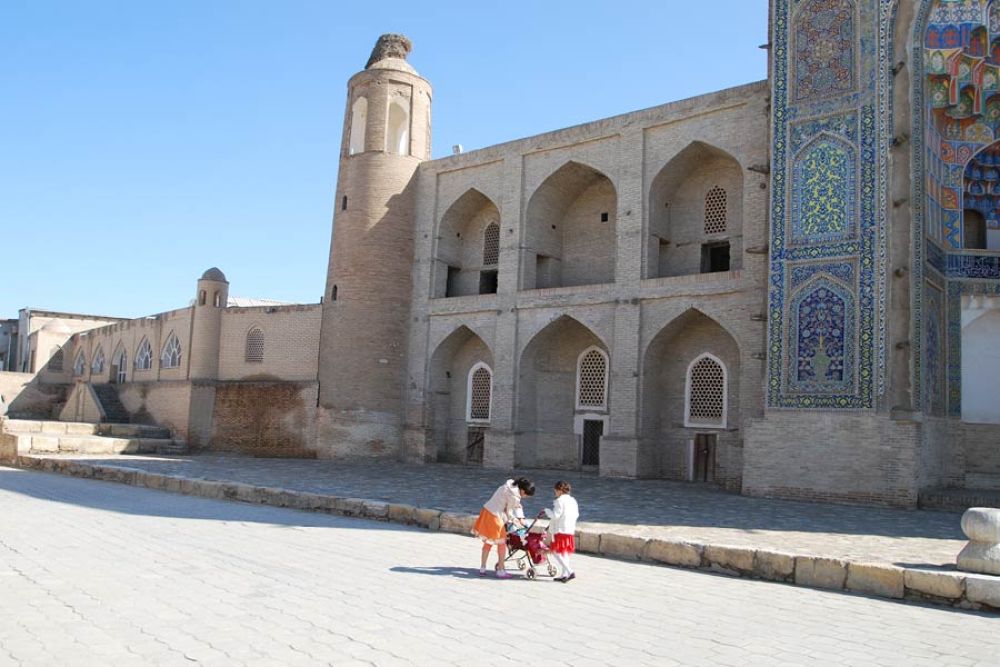

The Abdulaziz Khan Madrasah, located in the historic city of Bukhara, Uzbekistan, is a remarkable example of 17th-century Islamic architecture. While the madrasah itself, being a religious school, was not directly associated with food history, the city of Bukhara has a rich culinary tradition stemming from its position on the Silk Road. This created a melting pot of different cultures, influencing local cuisine with various spices, cooking methods, and ingredients from across Asia and the Middle East.
In Bukhara, food is an integral part of social and cultural life, and historic madrasahs often played host to scholars and teachers who would partake in meals that showcased local produce and traditional dishes. Over time, the cuisine evolved to include a variety of meat (primarily chicken, lamb, and fish due to Islamic dietary laws), grains, vegetables, and fruits, all seasoned with unique spice combinations indigenous to the region.
Restaurant Lyabi-Hauz
Address: 13, Hakikat str., Bukhara
Famous Dish: Plov (Non-Veg)
Minzifa
Address: 63, Eshoni Pir Str., Bukhara
Famous Dish: Manty (Non-Veg)
Old Bukhara
Address: 8, Nakshbandi Street, Bukhara
Famous Dish: Lagman (Non-Veg)
Chasmai Mirob
Address: Near Chashma-Ayub, Bukhara
Famous Dish: Shurpa (Non-Veg)
Silk Road Tea House
Address: 7 Khodja Nurobobod Street, Bukhara
Famous Dish: Kuk Samsa (Veg)
While many dishes in Bukhara lean heavily on meat-based recipes, vegetarian tourists can also find traditional foods that cater to their dietary preferences. It's worth noting that due to the religious context of madrasahs, the food served in their vicinity would typically embrace halal principles. Additionally, Uzbek cuisine is known for its aromatic bread, fresh vegetables, and delectable sweets that can be relished by every visitor.